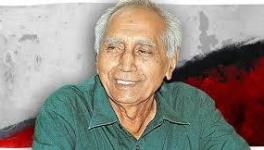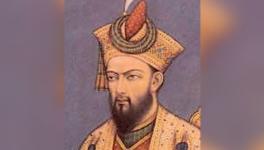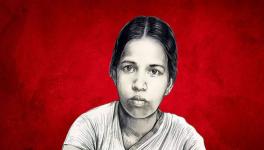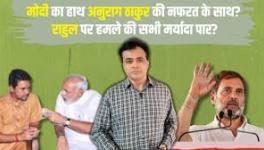Caste Makes Justice Seem Like a Threat

‘Who am I?’ is a generic question that often arises. Yet it is a deeply personal question, too, and specific to each of our socio-political realities and circumstances. This question lies at the core of the discourse about identity. In it, the universal truth is that we are human beings and we are, at least, born free. But how free is a victim of socio-political circumstances? A human being can have instincts and imagination, but a victim cannot have imagination, fantasy, dreams, choices, or thoughts. The prerequisite to overcome victimisation is intellectual labour, because thinking brings awareness of grim realities that prevent us from achieving our dreams. They say, human beings never lie in their dreams and that because of this, we are our dreams. But circumstances kill our dreams every day. For most of us, the reality of caste shatters our every dream.
We always think, imagine or fantasise under the influence of something external in caste society—but caste itself is something we can no longer see. As a result, we cannot see what we must to set ourselves free. We know that caste exists, but it is nearly impossible for most of us to understand how it shapes us. Even some who claim to fight it don’t understand this process. The oppressors, of course, have the privilege of ignorance which lets them say they do not believe caste exists. But caste oppression is real and widespread for those stung by caste; its assaults and humiliations.
For the oppressed, caste exists as a by-product of the unfreedom it creates around them. In that sense, caste is a deception—he may think it exists in him, but it is only in those who exert its force on him that it truly exists. For the oppressor, caste exists only so long as he oppresses others. Therefore, caste, for him, is an illusion—one he must maintain in order to ensure his sense of caste supremacy. Caste society lives in harmony with the unavoidable reality of this deception and illusion—the oppressor who does not see caste and the oppressed who cannot see it work. In this way, caste persists from dawn to dusk, living in the darkest corner of our dreams.
The caste system has invaded our minds and taken over our instincts and imagination. Its purpose is to establish itself as the reality and truth—although it is a fantasy that discourages thinking and penalises those who think beyond it. In caste society, we cannot evolve intellectually, because even those who claim to fight caste, and for a just and equitable society, cannot think freely unless they think about caste. The caste we are born into paralyses our thoughts. Our existence is never devoid of caste.
How can we make sense of why our dreams get destroyed in a society which alienates us from the truth? I observe two areas in which caste operates differently, celebration and disembodiment.
Celebration: India’s oppressed castes tend to celebrate everything. It is essential for them as it reconfigures their spirit to resist oppressive tactics. This author has observed that most oppressed castes tend to celebrate figures from the past, which helps avoid the complexity of the present. Investing heavily into celebrating the past means not having to create a legacy for the future. Members of oppressed castes also find people praiseworthy after they are no longer alive. This phenomenon may be unique to caste society. People from oppressed backgrounds rarely celebrate the works and achievements of living persons. It could be due to resource scarcity. India’s oppressed are a massive population, which always lacked resources. As a result, the plague of competition and jealousies is widespread among them. They celebrate to the extent that it provides them with immediate relief from their agonies. At the same time, it saves them from shouldering the burden of fashioning a substantial future.
Caste has made the oppressed realise that their history is just a reminder of their chains. So, they skip no chance to celebrate. It often consumes so much time, energy, and imagination that it releases them from all burdens about the future. Caste makes them realise they do not exist, and do not matter much, so they decide to celebrate instead of thinking about tomorrow. Celebration is their response to the invisibility that the oppressor caste has made him conscious of, yet alienated from. As a result, they see themselves through the lens of the oppressors’ fantasy rather than the truth of their existence. After all, how can I liberate myself if I am filled with the ideas that are not mine but others’?
Disembodiment: We exist in caste society without a social body. We think of caste even while we imagine individuals. Caste, therefore, disembodies not only society and groups but individual bodies from minds. It reflects in our social, political, cultural, intellectual and sexual lives. The result is our inability to think as a society—our disembodiment. It is one reason why the idea and practice of democracy has failed to convince people in India. The oppressor caste is the primal and most blatant specimen of this disembodiment. Its members separate themselves from others and ensure no one can ever consolidate against them (or with others) in the caste system. It has fostered a fear, which is now a part of our psyche. We are pathological to the extent that we think the touch of a fellow human could pollute us! We think reservations of jobs or educational seats for the historically oppressed communities would snatch prosperity away from the historical oppressor—and we believe that would be an injustice! Caste has made justice look like a threat.
Caste has terrorised us deep within our psyche. American writer Ta-Nehisi Coates says, “Disembodiment is a kind of terrorism, and the threat of it alters the orbit of all our lives and, like terrorism, this distortion is intentional.” Caste has altered the orbit of the oppressor’s mind, so he perceives neither himself nor others with love or empathy. It frightens the oppressor, too, but he would never acknowledge it. He can kill his daughter, her husband not from their caste, or their child to preserve caste. In his mind, love’s existence is caste-coated. He could never know its potential to deinstitutionalise the psyche and allow empathy with those who disagree with his ideas and imagination.
Disembodied caste has filled him with hatred and the far more dangerous feeling of indifference. Privilege and power make it nearly impossible for him to escape: He wants to hold on to privilege for it imparts power, makes him feel special and gives him an upper hand in society.
Even the oppressed experience this disembodiment, but differently. Since they face tremendous challenges in living with dignity, often, they learn to coexist by eradicating differences between themselves and the world. They learn that as humans, all have the same value and deserve the same respect. But the oppressor spoiled by power, privilege and desires often seeks gratification and solace in material and mundane things. For example, the oppressor showers love, empathy and care on animals, for they cannot hold him accountable for his historical wrongdoings. The oppressor’s quest for love, empathy, and care leads him to seek privilege and power in a non-human world. Meanwhile, he could not care less if the worlds of those living around him perishes of hunger and discrimination. How will he free himself if he keeps running behind the illusion he created?
That is why caste society has erased from the psyche of its people the answer to ‘Who am I?’
Yogesh Maitreya is a poet, translator and founder of Panther’s Paw Publication, an anti-caste publishing house. He is pursuing a PhD at the Tata Institute of Social Sciences, Mumbai.
Disclaimer: The views expressed in this article are the writer's own, and do not necessarily represent the views of the Indian Writers' Forum.
Get the latest reports & analysis with people's perspective on Protests, movements & deep analytical videos, discussions of the current affairs in your Telegram app. Subscribe to NewsClick's Telegram channel & get Real-Time updates on stories, as they get published on our website.
























